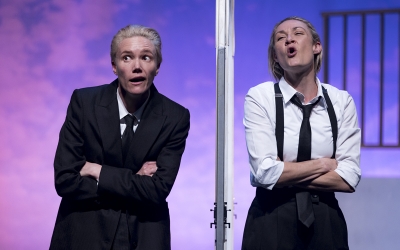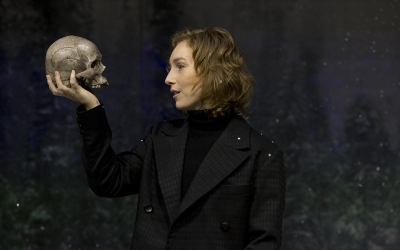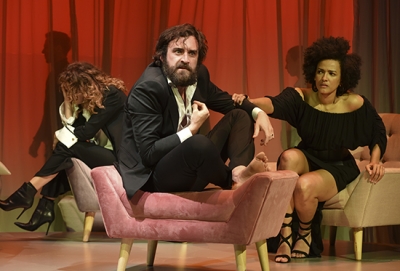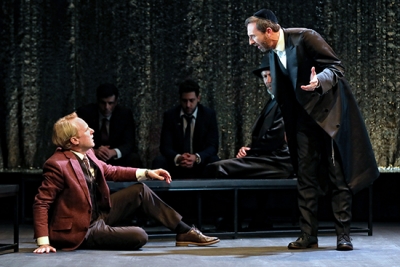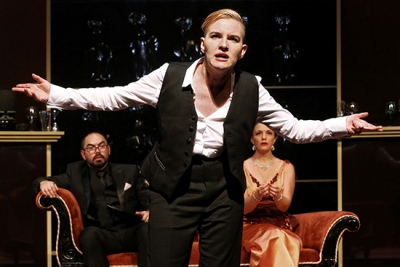Bell Shakespeare
One thing is certain: Shakespeare’s The Comedy of Errors is flat out hilarious, and if it isn’t funny enough on stage, it’s the fault of the production. His only farce, it is often thought to be an early work, but it is surely far too assured to be written before 1594. It’s entirely free of the striving Marlovian rhetoric that hampers the Henry VI plays (commenced in 1591), and it is cleaner, cleverer, and more convincing than The Taming of the Shrew (probably before 1592). It is based on Plautus’s Menaechmi ...
... (read more)Back in 1991, Bell Shakespeare opened their very first season with Hamlet, starring John Polson and directed by John Bell himself; it deliberately highlighted the Australian vernacular, almost over-emphasising the flat vowel sounds and local cadences over the fruitier delivery we inherited from the British. It had a gritty contemporary setting, and garishly over-the-top costumes. It also wasn’t very good.
... (read more)What can you do with Shakespeare’s Titus Andronicus, a play full of murder, mutilation, and rape, culminating in a mother eating a pie filled with her sons’ ground-up body parts? For centuries it was dismissed as the early aberration of a genius, a sop to the bloodthirst of Elizabethan audiences ...
... (read more)There is much conjecture around the concept of Shakespeare’s ‘problem plays’; critics disagree not only on the strict meaning of the term – F.S. Boas saw them as works that used a protagonist’s dramatic situation to illustrate a social problem, while Ernest Schanzer insists they turn on an ethical dilemma ...
... (read more)At first glance, Molière’s The Miser, or L’Avare in the original French as first performed in 1668, contains the seeds of drama. Harpagon, an avaricious father, unceasingly heartless towards his grown son and daughter, and paranoid they will steal his beloved fortune, sounds like the stuff of tragedy ...
... (read more)Julius Caesar, first performed in 1599, dates from the period when Shakespeare was leading up to Hamlet, and its central figure Brutus, the conscientious assassin, is a bit of a rough draft for the introspective side of the Prince of Denmark, whereas Richard II, four years earlier ...
... (read more)Antony and Cleopatra (first performed circa 1607) is one of Shakespeare’s most poetic plays, full of imagery of exotic Egypt with its crocodiles and serpents, its River Nile and, of course, Enobarbus’s extravagant speech describing Antony’s first sighting of its queen: ‘The barge she sat in, like a burnished throne/ Burned on ...
... (read more)The Merchant of Venice is a troublesome play. I have seen productions that have played up the comic aspects to an absurd and irritating degree while confining Shylock to the stereotype that bears his name. Some interpretations exploit the play as anti-Semitic propaganda ...
... (read more)The stage is open – a glossy art deco drawing room with plush velvet chairs and a chaise longue, cocktail glasses, and champagne, ready for a party. An engaging young man, dressed formally in a three-piece suit steps onstage and begins the famous speech: ‘Now is the winter of our discontent ...
... (read more)Whatever else Peter Evans's production of Othello has going for it, and it has indeed much, the speaking of Shakespeare's verse is outstanding. It is never declamatory, in the way that some famous actors of earlier decades dealt with it. The verse emerges entirely intact, but is always made to ...
... (read more)
